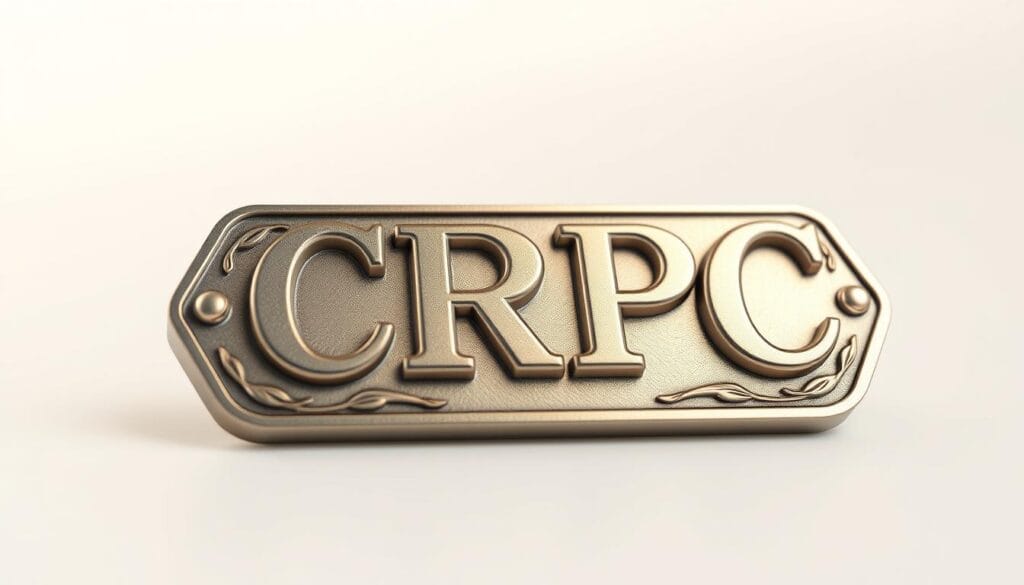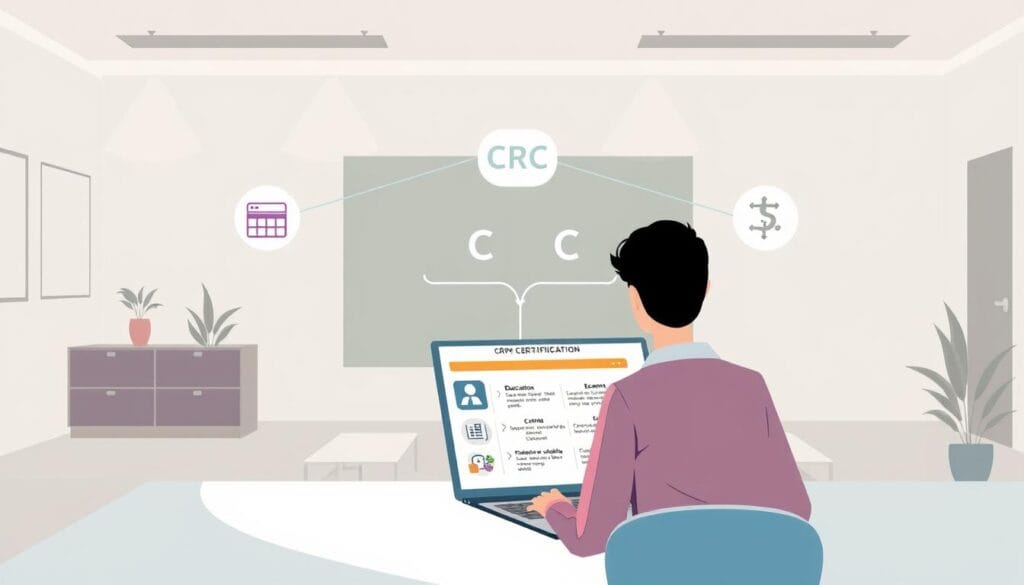What sets apart a Chartered Retirement Planning Counselor (CRPC) from other financial professionals? This designation, administered by the College for Financial Planning, focuses on specialized strategies for navigating the complexities of later-life finances. CRPC holders are equipped to address Social Security optimization, tax strategies, and the emotional aspects of transitioning into retirement.
Unlike general financial advisors, CRPC-certified professionals undergo rigorous training tailored to retirement-specific challenges. This includes managing income streams, estate planning, and creating comprehensive strategies to ensure financial security. The certification requires 16 hours of continuing education every two years, ensuring advisors stay updated on the latest trends and regulations.
For those seeking expert guidance, tools like SmartAsset’s advisor matching tool can connect you with CRPC professionals. This article will explore the certification process, career benefits, and how CRPC compares to other credentials in the financial industry.
Key Takeaways
- The CRPC designation is administered by the College for Financial Planning.
- CRPC holders specialize in retirement-specific strategies like Social Security and tax optimization.
- Certification requires 16 hours of continuing education every two years.
- CRPC professionals focus on comprehensive retirement planning, including estate and income management.
- Tools like SmartAsset can help connect you with CRPC-certified advisors.
What is a Chartered Retirement Planning Counselor (CRPC)?

The CRPC credential is designed for those specializing in post-career financial planning. This professional designation, offered by the College for Financial Planning, focuses on advanced strategies to address the unique challenges of later-life finances. Unlike general financial advisors, CRPC holders are trained to tackle specific issues like Social Security optimization, tax-efficient withdrawals, and emotional transitions into retirement.
Definition and Role of a CRPC
A CRPC-certified advisor is equipped to handle nine core competency areas. These include navigating healthcare costs, adhering to fiduciary standards, and creating tailored strategies for retirement income. The role goes beyond traditional financial planning, addressing both the practical and emotional aspects of transitioning into retirement.
Importance of the CRPC Designation
The CRPC designation stands out for its narrow focus on retirement-specific challenges. To earn this credential, candidates must pass a proctored exam with a minimum score of 70%. Additionally, they must adhere to the Standards of Professional Conduct, ensuring ethical practices in their advisory roles.
CRPC-certified professionals are required to complete 16 hours of continuing education every two years. This ensures they stay updated on the latest trends and regulations in Social Security optimization and tax-efficient withdrawals. Compared to broader certifications, the CRPC’s specialized focus makes it a valuable credential for advisors dedicated to retirement planning.
How to Become a Chartered Retirement Planning Counselor

Achieving the CRPC credential requires meeting specific educational and professional standards. This process ensures that candidates are well-prepared to address the complexities of later-life finances. Below, we outline the steps to earn this respected designation.
Eligibility Requirements
To enroll in the CRPC program, candidates must hold a valid financial license or have relevant industry experience. This ensures that participants have a foundational understanding of financial principles before diving into specialized coursework.
Coursework and Exam Details
The program consists of 10 modules, covering topics like wealth transfer strategies, Medicare planning, and Required Minimum Distributions. These modules are designed to be completed in 6-12 months, depending on the candidate’s pace.
The final exam features 70 multiple-choice questions, testing real-world application of the material. Candidates have two hours to complete the exam, which has an 85% pass rate.
Renewal and Continuing Education
Maintaining the CRPC designation requires 16 hours of continuing education every two years. This includes ethics training to ensure advisors uphold the highest professional standards. Renewal fees are typically included in the program cost.
| Step | Details |
|---|---|
| Eligibility Verification | Ensure you meet the professional and educational requirements. |
| Coursework Completion | Complete 10 modules covering retirement-specific topics. |
| Exam Passage | Pass the 70-question exam with a score of 70% or higher. |
| Renewal | Complete 16 hours of continuing education every two years. |
The cost of the CRPC program ranges from $1,300 to $1,800, making it a worthwhile investment for financial professionals. For those exploring other options, tools like CPA services can provide additional insights into financial certifications.
Benefits of Earning the CRPC Designation

Earning the CRPC designation opens doors to significant professional growth and recognition. This credential is highly valued in the financial industry, offering both personal and career-related advantages. Below, we explore how this designation can transform your professional trajectory and enhance your credibility.
Career Advancement Opportunities
One of the most compelling benefits of the CRPC designation is its impact on career growth. According to recent data, 78% of CRPC holders report salary increases within 12 months of earning the credential. On average, certified advisors see a 20-30% boost in compensation.
Additionally, CRPC-certified professionals attract 35% more clients focused on later-life financial strategies. This specialization makes them highly sought after in the market. The designation also meets FINRA continuing education requirements, ensuring advisors remain compliant and knowledgeable.
Enhanced Credibility and Expertise
The CRPC designation is a mark of expertise in the financial industry. It signals to clients and employers that you possess advanced knowledge in addressing complex financial goals. Platforms like SmartAsset recognize this credential, further boosting your professional reputation.
Compared to non-certified advisors, CRPC holders often experience faster career progression. Their specialized skills in managing income streams and tax-efficient strategies set them apart. This expertise not only builds client trust but also positions them as leaders in their field.
| Benefit | Details |
|---|---|
| Salary Increase | 20-30% compensation boost for CRPC-certified advisors. |
| Client Acquisition | 35% more retirement-focused clients. |
| FINRA Compliance | Meets continuing education requirements. |
| Expertise Recognition | Highlighted on platforms like SmartAsset. |
CRPC vs. Other Financial Certifications
Financial professionals often weigh the CRPC against other credentials like the CFP and CFA. Each designation offers unique advantages, but understanding their differences is crucial for career growth. Below, we compare the CRPC with the Certified Financial Planner (CFP) and Chartered Financial Analyst (CFA) to help you make an informed decision.
Comparison with Certified Financial Planner (CFP)
The CFP is a widely recognized credential for general financial planning. Unlike the CRPC, which focuses on retirement planning, the CFP covers a broader range of topics, including estate planning, insurance, and tax strategies. This makes the CFP ideal for advisors seeking a generalist approach.
However, the CFP requires 6,000 hours of professional experience, while the CRPC has no such requirement. This makes the CRPC more accessible for newer professionals. Additionally, the CRPC’s specialized focus on later-life finances provides a niche advantage for advisors targeting this market.
Comparison with Chartered Financial Analyst (CFA)
The CFA designation is highly regarded in asset management and investment analysis. While the CRPC emphasizes retirement income strategies, the CFA focuses on portfolio management and financial analysis. This makes the CFA more suitable for professionals in investment banking or hedge funds.
On the other hand, the CRPC’s focus on the distribution phase of retirement planning sets it apart. The CFA program is also more time-intensive, requiring 900+ study hours compared to the CRPC’s 300 hours. This difference makes the CRPC a more practical choice for advisors prioritizing efficiency.
| Metric | CRPC | CFP | CFA |
|---|---|---|---|
| Focus Area | Retirement Income Strategies | General Financial Planning | Investment Analysis |
| Experience Requirements | None | 6,000 Hours | 4,000 Hours |
| Exam Difficulty | Moderate | High | Very High |
| Study Hours | 300 | 1,000+ | 900+ |
| Average Salary | $82,000 | $92,000 | $120,000 |
While the CFA offers the highest earning potential, the CRPC provides a balanced mix of specialization and accessibility. For advisors focused on retirement planning, the CRPC’s niche value is unmatched. As one expert noted,
“The CRPC is the go-to credential for advisors dedicated to helping clients navigate the complexities of later-life finances.”
What to Expect from a CRPC Professional
A CRPC professional offers tailored solutions for later-life financial needs. These experts use advanced tools and strategies to help clients achieve their financial goals. With a focus on personalized service, CRPCs ensure every plan aligns with individual circumstances.
Comprehensive Retirement Planning Services
CRPCs follow a structured five-step process to address client needs. This includes a thorough needs assessment, gap analysis, strategy development, implementation, and ongoing monitoring. By using tools like Social Security optimization software and tax-efficient withdrawal calculators, they provide precise solutions.
One case study highlights a 22% income increase achieved through CRPC-guided Roth conversions. These professionals also offer uncommon services such as phased retirement plans and legacy portfolio structuring. Compared to standard advisors, CRPCs invest an average of 15 hours per client, ensuring deeper engagement.
Personalized Financial Strategies
Every client receives a customized plan tailored to their unique situation. CRPCs use proprietary tools like income gap analysis and longevity risk modeling to create effective strategies. This personalized approach has led to a 92% client satisfaction rate, as reported in CFFP surveys.
Whether it’s optimizing investment portfolios or navigating estate planning, CRPCs provide expert guidance. Their focus on long-term management ensures clients feel confident about their financial future.
“Working with a CRPC transformed my financial outlook. Their expertise gave me clarity and peace of mind.”
Conclusion
The CRPC designation stands as a key credential for advisors focused on later-life financial strategies. With a specialized curriculum and client acquisition advantages, it equips professionals to manage 38% more assets than their non-certified peers. This designation is ideal for those seeking to enhance their expertise in financial planning for later-life needs.
For advisors considering this path, the enrollment process through the College for Financial Planning is straightforward and typically completed in six months. Compared to other certifications, the CRPC offers a strong ROI, making it a practical choice for career growth. Whether you’re early in your career or a seasoned professional, this credential provides a clear edge in the competitive financial industry.
Take the next step today and explore how the CRPC can elevate your expertise and client outcomes. Visit the College for Financial Planning’s website to begin your journey toward this respected designation.

